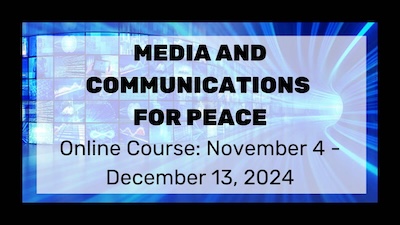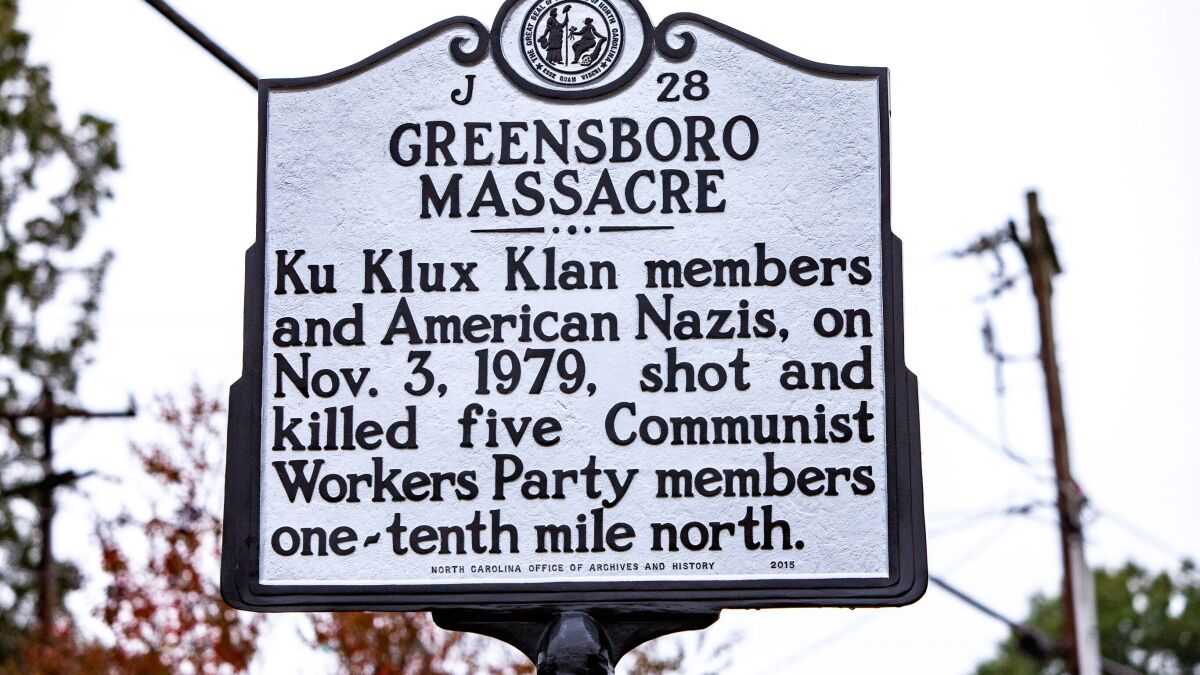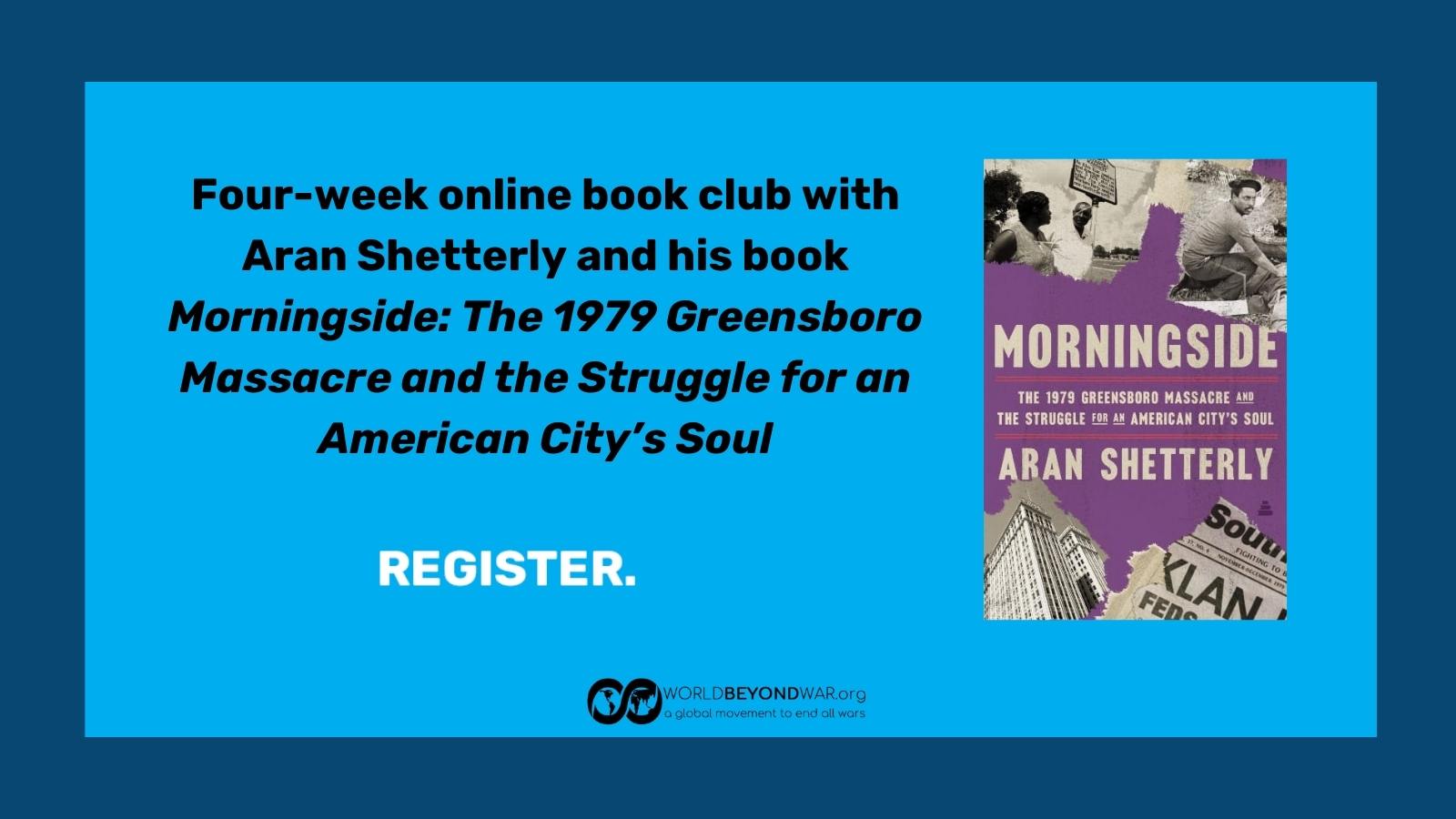By David Swanson, World BEYOND War, October 3, 2024
A new book called Morningside: The 1979 Greensboro Massacre And The Struggle For An American City’s Soul by Aran Shetterly provides a detailed examination, in historical context, of a largely forgotten incident in which KKK and Nazi shooters (some of them veterans of the war on Vietnam), with the complicity of local and federal “law enforcement,” shot at black people in Greensboro, North Carolina, killing five, wounding many, and dragging social progress backwards.
I was nine years old and geographically not that far away but cannot recall hearing one word about the Greensboro Massacre at the time it happened, November 3, 1979. But on November 4, 1979, the “Iran Hostage Crisis” was launched as the biggest news story for over a year to come, yellow ribbons appeared on trees everywhere, and friends at school who made casual jokes about murdering black people but never imagined living near violence or Klan rallies began doing things like singing a song in a school show with the lyrics “Bomb Bomb Bomb Bomb Bomb Iran.” (More apologies owed the Beach Boys, and the threat to Iranians has never yet gone away.)
Shetterly’s book takes us through many surprising connections in the history of Greensboro and of U.S. race relations leading up to the Civil Rights movement, through the Massacre, and right up through an official city apology in the year 2020. The book makes the big picture clear while not shying away from a great deal of nuance. The perpetrators of the murders were extending a history of white supremacist terrorism, and those who blamed the victims — from local racists to the New York Times — were lying disgracefully. The police and their infiltrators/provocateurs were deeply complicit, knew there would be conflict, knew the racists were bringing guns, had ordered the victims not to bring guns, had not told them what the Klan was up to, and had said they would be there to protect a planned anti-Klan march and then stayed out of the way. This fit a pattern of Southern police conduct in famous cases like the Freedom Ride buses and many less famous ones.
But the killers had been attacking an anti-Klan march that had been publicly advertised with slogans like “Death to the Klan” by enthusiasts for at least imaginary violence who themselves had brought guns to the march and whose immediate thought, in some cases, after the massacre had been that they should have brought more.
In the town where the lunch counter sit-in had been made a famous success in 1960, nineteen years later one saw activists organizing against racism and poverty by talking about communism and violent revolution — in other words, shifting from tactics that claim the moral high ground and bring people in to tactics that needlessly scare people away.
The book is in part a portrait of Joyce and Nelson Johnson, key organizers of the anti-Klan march. Their sagas cannot be briefly summarized and should be read. I will note that Nelson planned to ask Martin Luther King Jr. about the choice of nonviolent activism when King visited Greensboro in April 1968, but King changed his plans to go support striking sanitation workers in Memphis, where he was murdered.
Morningside is a portrait of the Civil Rights movement seen nationally and seen locally through Greensboro, and of how the two levels interacted, and of how important students and campuses were to the struggle. It includes a story of an arms race that precedes a war, of the increased carrying of guns by both police and activists.
It’s also a story of a “legal system” that had to change with the times: prosecuting the victims; acquitting the perpetrators through that powerful defense, the all-white jury; and progressing through Congressional hearings and a civil suit; concluding with a truth and reconciliation commission. As always, there is a great deal of nuance, of mixed intentions, of competing priorities. The priority of protecting the police and the FBI and the Bureau of Tobacco and Firearms, for a while at least, seemed to outweigh the priority of convicting murderers, even for those who sought those convictions.
Activists seem to have, in large part, admitted their mistakes before those in power did. And those activists, including Nelson Johnson, did a lot more than acknowledge mistakes. They started over with wiser tactics that achieved stunning successes in the 1980s and 1990s that had not been realized in the 1970s — including by doing that thing that even the U.S. State Department condemns: speaking with the enemy.
All is not perfected in Greensboro or the United States or the world. We’re only seven years on from a racist Nazi rally in my and Aran Shetterly’s town of Charlottesville, Virginia. The then-president who made comments condoning that riot is now in a close race to be newly elected against a candidate who seems intent on outdoing his warmongering and his demonizing of immigrants. But if all were perfected, we wouldn’t need this book to continue the process of learning from our past.
Shetterly is doing an online bookclub to discuss his book (you get a free copy) with a small group. Sign up here.










